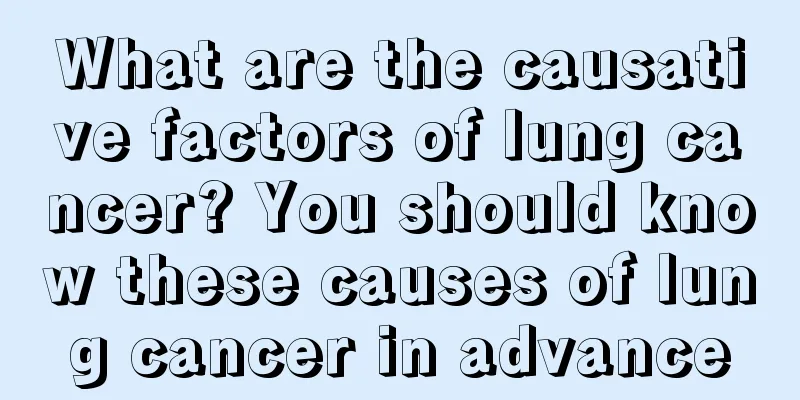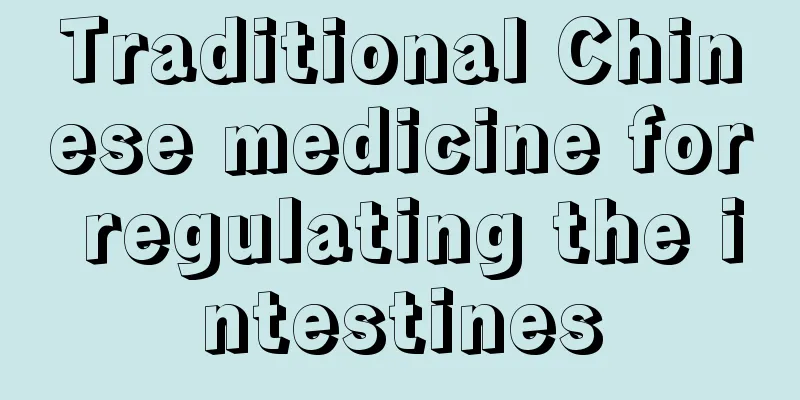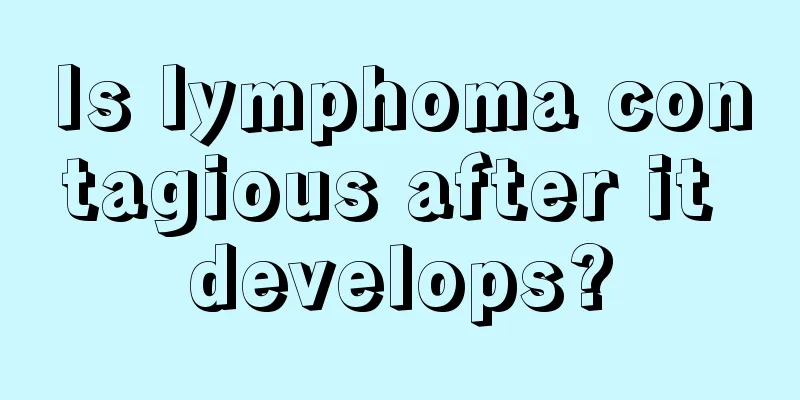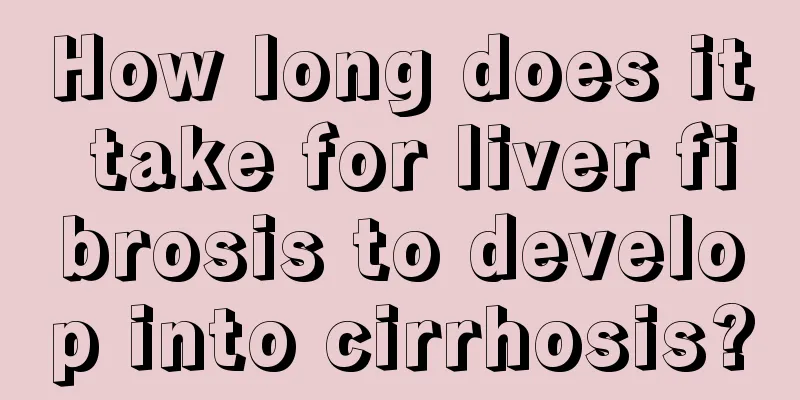The difference between interventional chemotherapy and chemotherapy
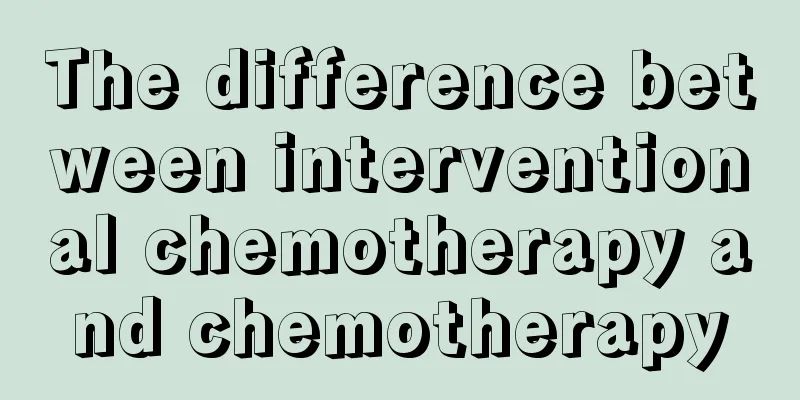
|
Chemotherapy is a way to treat diseases. It is mainly a better way to kill cancer cells. Treatment is divided into interventional therapy and systemic therapy. Although both belong to the category of chemotherapy, there are great differences in the treatment methods. Interventional chemotherapy is mainly local chemotherapy, which is to make tiny channels through blood vessels or skin, and then directly apply chemotherapy drugs to the local area, while chemotherapy is systemic treatment. 1. The weapons they use are different: Radiotherapy is called radiotherapy. It is a treatment method developed by an outstanding physicist who can use rays of various energies to deal with tumors in order to inhibit and kill tumor cells. Chemotherapy is an outstanding chemist who is good at using chemical drugs (including endocrine drugs, etc.) to fight against tumors. Chemotherapy drugs are usually injected intravenously, taken orally, or in other forms to enter the body to kill tumors. 2. Their attack ranges are different: radiotherapy and surgery are good at fighting, and their local attack force is greater and stronger. The range of radiotherapy is called the "target area", that is, the area where the radiation is concentrated for treatment. There is not much radiation outside the target area, and normal tissue will not be greatly damaged. Chemotherapy is mainly systemic treatment. After the drugs enter the body, they will be distributed throughout the body. They not only have an effect on solid tumors, but also have a strong killing effect on tiny invisible metastases. Of course, there are also chemotherapy methods that focus on local treatment, such as interventional chemotherapy, local perfusion chemotherapy, etc. 3. They attack different targets: Radiotherapy is mainly aimed at the radical treatment of relatively localized solid tumors, such as head and neck tumors, lung cancer, esophageal cancer, skin cancer, lymphoma, etc.; preoperative and postoperative adjuvant treatment of some tumors such as breast cancer, cervical cancer, and gastrointestinal tumors; and palliative radiotherapy for some tumors such as bone and brain metastases, etc., but it has limited effect on systemic tumors such as leukemia. Currently, about 70% of cancer patients need to receive radiotherapy at different stages of the disease, which shows the importance of radiotherapy in cancer treatment. Chemotherapy is aimed at tumors that are more sensitive to chemotherapy drugs, such as lymphoma, leukemia and other blood system diseases, breast cancer, gastrointestinal tumors, lung cancer, reproductive system tumors, etc. The effectiveness of chemotherapy depends on the type and condition of the tumor. Some can be cured, while more often it can inhibit tumor growth and spread. At this point, some people may ask, since they are applied in different fields, why chemotherapy kills people faster? This depends on the fourth point: toxic side effects. In general, radiotherapy is mainly a local reaction, which is related to the radiotherapy field. For example, radiotherapy to the head and neck can cause dry mouth, sore throat, neck fibrosis, decreased taste function, etc. Chest radiotherapy may cause radiation-induced lung changes, radiation-induced esophagitis, etc. With the advancement of radiotherapy technology, radiation brain damage and paraplegia, which were common in the past, occur less frequently. Chemotherapy mainly causes systemic reactions, generally bone marrow suppression and gastrointestinal reactions, such as low blood count, nausea, vomiting, and phlebitis, etc. As long as the treatment is proper (such as combining with the Chinese medicine ginsenoside R G3 to enhance detoxification), severe liver and kidney damage, heart damage, and severe reactions such as "vomiting bile" are not very common clinically. With the development of technology, the toxic side effects of radiotherapy and chemotherapy are gradually being alleviated. This shows that the side effects of chemotherapy are more serious than those of radiotherapy. Therefore, it is recommended to cooperate with Chinese medicine treatment during chemotherapy, such as Ganoderma lucidum, Astragalus, Ginsenoside R G3, etc. Studies have found that among many anti-tumor Chinese medicines, ginsenoside RG3 inhibits the formation of new blood vessels in tumors; prevents the implantation of detached cancer cells on the blood vessel wall; inhibits the infiltration of tumor cells into the basement membrane of the blood vessel wall, and has significant anti-infiltration and anti-metastasis effects. Clinical experiments have confirmed that ginsenoside RG3 can effectively inhibit the growth of lung cancer, liver cancer, stomach cancer, intestinal cancer, and breast cancer, significantly improve clinical symptoms, improve quality of life, prevent and treat cancer, improve cardiovascular function, resist platelet aggregation, protect brain nerve cells, and enhance the body's immunity. Having said that, although there are such big differences between radiotherapy and chemotherapy, in fact, radiotherapy, chemotherapy and surgery are used in conjunction with each other in the treatment of many tumors. Nowadays, tumor treatment emphasizes comprehensive treatment, and breast cancer and lung cancer are the most common cases of comprehensive treatment. As for when to treat tumors with surgery, radiotherapy, chemotherapy, or palliative care, it depends on the clinical physician. However, it is recommended that Chinese medicine be used as an auxiliary treatment to enhance detoxification and improve immunity. |
<<: What are the endocrine organs?
Recommend
What are the MRI manifestations of prostate cancer
MRI mainly relies on T2-weighted images to detect...
Can childhood colorectal cancer be cured?
Colon cancer is a malignant tumor of the digestiv...
What are the symptoms before death from advanced gastric cancer?
In the late stage of gastric cancer, most patient...
What are the benefits of drinking Huanghuangmiao tea
The yellow seedlings are dandelions, which are ri...
What are the benefits of massaging the spine
The spine is an important component of the human ...
What's the matter with walking off track
Walking deviation may be caused by cerebral infar...
Where is the reflex area of the heart
The heart is a very important part of the human b...
Is it painful to have a recurrence of brain cancer?
Tumors that grow in the brain are generally calle...
Does a nodular goiter require surgery?
Thyroid nodules are a common disease, which mainl...
What to do if there is a black mark on the buttocks
Since the buttocks are located on the back of a p...
Are push-ups aerobic or anaerobic
In fact, people who regularly exercise in the gym...
Why do I have back pain one and a half years after lung cancer surgery? What should I do?
The causes of back pain one and a half years afte...
How to preserve sea crabs to keep them fresh
The nutritional value of sea crabs is relatively ...
What to eat and what to vomit after radiotherapy for nasopharyngeal carcinoma? What are the reasons?
There are many reasons for this, some of which ar...
What should I do if fat beans grow on my face
One of the most delicate parts of the human body ...
